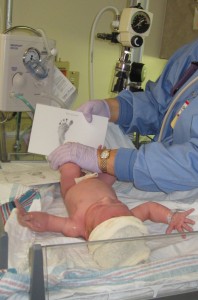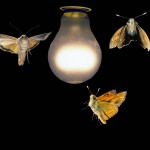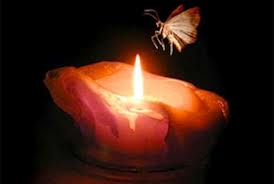Yesterday Birgitta and Emerald shared some giggle-time watching YouTube videos of laughing babies. Emerald responded with delight, as if each face was part of her inner circle of friends.
 What is it about a picture of a baby that delights another baby? Even when she looks at herself in a mirror and smiles, she might not know it’s her, but she knows it’s another baby-face and laughs in response.
What is it about a picture of a baby that delights another baby? Even when she looks at herself in a mirror and smiles, she might not know it’s her, but she knows it’s another baby-face and laughs in response.
Not so with adult faces. Most little ones stare with skepticism at pictures of adults unless they know them personally. In some mysterious way a baby knows that another baby is “somebody like me.”
After reading the Bible, I’ve gotten the impression God looks at people much the same way, smiling at us with pleasure. Scripture says, “He delights in his people.” (Psalm 149:4) This is illogical and mysterious, since he’s perfect and we’re far from it. So why does he delight in us?
Could it be because he made us “in his image?” In what sense, though, are we the image of him? The only thing I can think of is that he and we are all eternal. Or maybe he enjoys us just because he made us. Even in our human world, when we make something we get attached to it, whether it’s a story we’ve written, a picture we’ve painted, or a room we’ve designed.
Despite those possibilities of why God takes pleasure in us, the most probable reason is that we’ve made the righteous choice to choose him, enjoying him personally, directly, one-on-one. When I think of him delighting in us because we’re delighting in him, it begins to make sense.
Still, there are verses that step outside of us focusing on him, passages that flat-out say how much he enjoys us. For example, Psalm 18:19: “He brought me out into a spacious place; he rescued me because he delighted in me.” And another one: “The Lord takes delight in his people; he crowns the humble with victory.” (Psalm 149:4)
Even in these, though, we see how “rescuing us” and “crowning us” has been accomplished only through his Son. So he can delight in us because he delights first in Jesus and then sees us through the lens of that perfection.
But if we want to work on being more Jesus-like ourselves, he tells us how:
- take time to read and study the Bible (Psalm 112:1)
- do our best to obey his commands (Psalm 119:47)
- fear him and put our hope in his love (Psalm 147:11)
- speak words of praise to and about him (Psalm 70:4)
- daily listen for his wisdom (Proverbs 8:34)
- strive to live blamelessly (Proverbs 11:20)
- recognize that only he can save us (Isaiah 61:10)
And then, just as Emerald smiles when she sees another baby, God will smile on us.
“The Lord makes firm the steps of the one who delights in him.” (Psalm 37:23)






